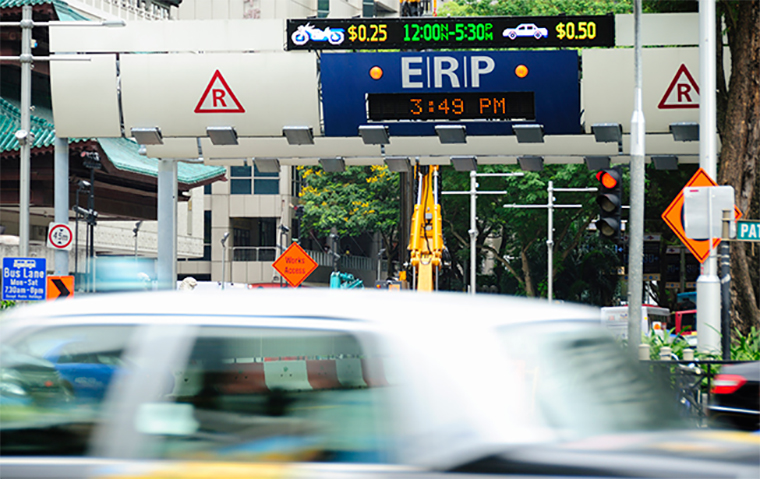A close friend of mine is getting married this year. I’m genuinely looking forward to his wedding, and I’m ecstatic for him and his fiancée.
A few months ago, over dinner, I casually asked about the progress of their wedding preparations and the costs they’ve incurred, concerned because my friend was between jobs at the time. He told me they had booked 29 tables, each costing S$1,300.
I was a bit taken aback when I heard this — that amount would definitely make a significant dent in their bank accounts. When I asked him why he and his fiancée were spending so much money, he said he had to because he wanted to save his family’s “face”.
A brief history of saving face
The cultural concept of "saving face" has been around for a long time and is prevalent in Chinese-majority countries. For more than 4 millenia, the Chinese have downplayed individualism, promoting the concept of family and group-based thinking.
This meant that bringing honour to your clan or group was more important than your own personal well-being. It's all about avoiding shame, preventing your family’s name from being proverbially "smeared in mud".
The Western "face", broadly speaking, is more self-oriented, while the Chinese "face" is directed outwards. The West celebrates individualism and achievement, while the East endorses humility and groupthink.
 Photo courtesy of Dr Wealth
Photo courtesy of Dr Wealth
Saving face is expensive, and stupid
Today, how we are perceived or seen by others plays a significant influence on our behaviour and the decisions we make. It even takes precedence over our own happiness, and many of us are willing to spend — often more than we can afford — just to ensure that we don’t look bad to other people.
We lament to people around us whenever we receive the “red bomb”, or a Chinese wedding invitation, but we still choose to go because the thought of "losing face" by declining to attend a dinner is more sacrilegious to us than the resulting body blow to our finances, in the form of the red packet we have to give.
We plan a grand wedding and fill our invite list with reluctant people who would rather be at home watching reruns of Mata Mata than witness the union of a couple whom they barely care about, and we do this because these very same guests will talk behind our backs if we decide to cut corners or cut them from the list, and then justify the debt we get into by saying that it’s an once-in-a-lifetime event.
Is it worth the lifetime debt, though?
 Photo courtesy of Dr Wealth
Photo courtesy of Dr Wealth
Let's extend this beyond weddings. We buy a car in Singapore, saying we need it for convenience, when it’s really about the prestige and status that comes with it. Then, we hunt for free parking spaces, surreptitiously reuse our parking coupons, wake up at 6am and leave the office at 9pm to save a couple of dollars on ERP charges. Convenience becomes a demanding mistress. Meanwhile, the group president of our sovereign wealth fund GIC Lim Siong Guan takes the train.
Our "face"-saving ventures aren’t limited to big-ticket purchases or huge social events. Consider the everyday decisions such as deciding on a place to eat lunch with your colleagues at. The restaurant that everyone wants to eat at might lie beyond your budget but you go along with it anyway because of social pressure and "face" preservation.
The financial consequences of saving face
The fact that there are websites dedicated to wedding angpow rates demonstrates the amount of effort we put in to save our face and preserve our honour. Assuming we go to four weddings a year and stuff an average of S$150 into our red packets, that’s S$600 annually.
The cost of a typical "face"-saving banquet wedding in Singapore would probably be around S$1,500 per table, including extraneous costs. Since you need to invite all your relatives, you’ll need at least 30 tables. That would add up to S$45,000. Even if you manage to recoup half of your costs through angpows (and this is a big if), you’re still spending more than S$22,000 on something that could have been better spent on an appreciating asset such as your house.
Over a lifetime, the financial implications of "saving face" is likely to be in the high five-digit range, perhaps even six. That’s a lot of money taken out of your retirement plans for the idea of satisfying a few people, who may or may not even care about you.
The next time you’re grappling with a decision that involves "saving face" or saving money, always ask yourself this: will the "face" I’ve saved throughout my life help me out when the banks or creditors come knocking?
Ironically, when these financial folks come to your door, all the "face" you’ve saved will come to naught.
This article was written by Farhan Shah and originally appeared on DrWealth.com.
DrWealth is Singapore's leading personal finance website. Apart from publishing money advice for the masses, we also offer free, effective and simple-to-use mobile and desktop tools to help you track and plan your finances. Take charge of your money today at DrWealth.com.
If you like what you read, follow us on Facebook and Twitter to get the latest updates.
If you like what you read, follow us on Facebook, Instagram, Twitter and Telegram to get the latest updates.
